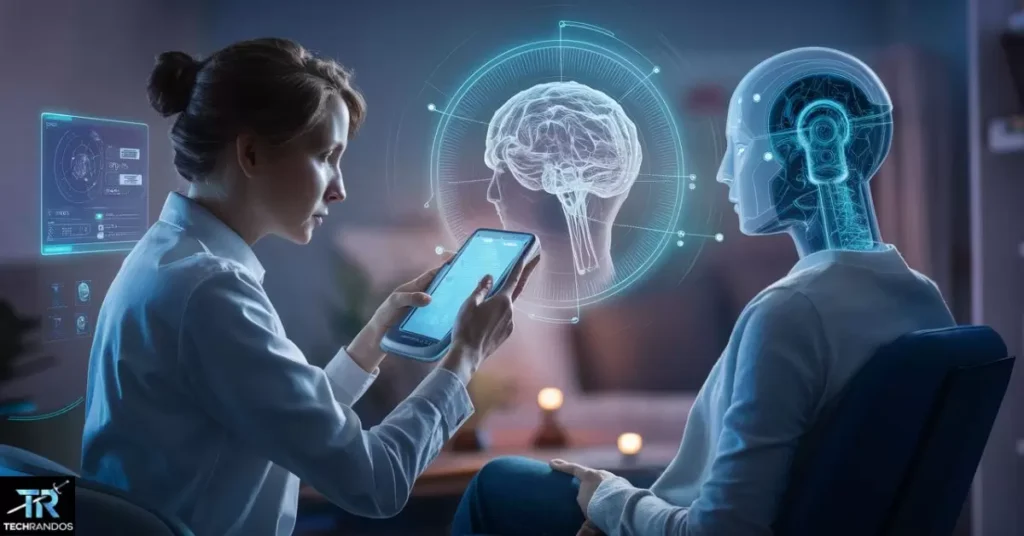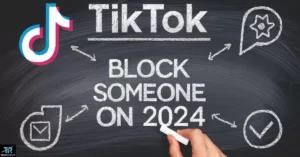As synthetic intelligence (AI) maintains to increase at a breakneck tempo, it’s venturing into realms as soon as thought to be exclusively human domains. From composing poetry to analyzing complicated feelings, AI’s talents are expanding rapidly. But what about the mysterious art of hypnosis? Could an AI machine potentially result in a hypnotic trance state in humans?
Hypnosis has lengthy been shrouded in thriller and misconceptions. However, at its core, it is a psychological country characterised through heightened attention, accelerated suggestibility, and a heightened state of awareness. While frequently associated with entertainment or celebration tricks, hypnosis has tested therapeutic packages in treating conditions like anxiety, pain control, or even dependency.
As we will discover, while the contemporary nation of AI technology makes it quite unbelievable for an AI to independently hypnotize a person, there are intriguing methods it may probably useful resource and augment human hypnotherapists. So, let’s dive in and separate reality from fiction.
What is Hypnosis? A Crash Course
Before we are able to determine whether AI may want to hypnotize a person, we want to apprehend the mechanics of hypnosis itself. Simply put, hypnosis is a trance-like kingdom of severe recognition and heightened suggestibility. It’s often mischaracterized as a kingdom of unconsciousness or being managed, but it really is a long way from the truth.
During hypnosis, the conscious mind will become extra relaxed, permitting the unconscious thoughts to grow to be more receptive to tips. Think of it like a guided meditation in which the hypnotherapist’s words and guidelines can influence your thoughts, feelings, and even physical sensations.
For hypnosis to work effectively, a few key elements are required:
- Intense Focus: The subject must be able to concentrate intensely on the hypnotherapist’s voice and instructions, tuning out external distractions.
- Suggestibility: The subject needs to be open to following the suggestions and imagery provided by the hypnotherapist.
- Rapport and Trust: A strong rapport and trust between the subject and hypnotherapist is crucial for the subject to feel comfortable enough to enter a trance state.
It’s important to note that hypnosis is not a state of unconsciousness or mind control. The subject remains aware and in control throughout the process and cannot be made to do anything against their moral or ethical principles.
The State of Modern AI: How Advanced Is It Really?

To assess whether an AI could potentially hypnotize someone, we need to understand the current state of AI technology and its capabilities. While AI has made remarkable strides in recent years, its abilities still have significant limitations, especially when it comes to replicating complex human behaviors and cognition.
AI excels in specific domains like:
- Natural Language Processing (NLP): Understanding and generating human-like language, enabling applications like virtual assistants and language translation.
- Computer Vision: Identifying and analyzing visual elements in images and videos, used in areas like self-driving cars and facial recognition.
- Pattern Recognition: Detecting patterns and making predictions based on large datasets, powering recommendation systems and predictive analytics.
However, AI still struggles with really comprehending and replicating the nuances of human psychology, emotion, and social interplay. While AI can analyze and respond to language, it lacks the deeper contextual understanding and intuition that humans own.
Additionally, AI structures today are exceedingly specialized and slender in their capabilities. An AI educated for language processing may not necessarily excel at obligations like visible belief or decision-making. This narrow cognizance is a far cry from the wide, adaptive intelligence required for something as nuanced as hypnosis.
That said, AI’s capacity is considerable, and because the era continues to evolve, it is able to at some point expand the necessary cognitive abilities and intensity of understanding to potentially set off hypnotic states. But for now, allow’s discover why the current nation of AI makes it distinctly unbelievable for it to hypnotize people independently.
Recommended Article: Explore the Future: Artificial Intelligence Powering SpaceshipsCould an AI Technician Induce a Hypnotic Trance? Probably Not
Based on our understanding of hypnosis and the current limitations of AI technology, it’s highly unlikely that an AI system could independently hypnotize someone effectively. Here are some key reasons why:
- Lack of True Understanding: While AI can process and generate language, it lacks the deep, contextual understanding of human psychology, emotions, and social cues required for effective hypnosis. Hypnosis involves subtle nuances and rapport-building that AI cannot yet replicate.
- Limited Adaptability: AI systems are narrow and specialized, trained for specific tasks. Hypnosis requires adaptive intelligence to respond to each individual’s unique reactions and tailor the approach accordingly. Current AI lacks this flexibility.
- Absence of Intuition: Successful hypnotherapists rely heavily on intuition and reading subtle nonverbal cues to guide the hypnotic process. AI’s lack of true intuition and emotional intelligence makes this extremely challenging.
- Trust and Rapport: Building the necessary trust and rapport for a subject to feel comfortable entering a trance state is a critical component of hypnosis. AI’s inability to form genuine connections and understand human emotions makes this difficult.
- Ethical Concerns: Even if AI could technically induce hypnosis, there would be significant ethical concerns and potential for misuse or manipulation. Strict guidelines and oversight would be necessary.
While these limitations make it improbable for current AI to hypnotize independently, that doesn’t mean AI couldn’t potentially aid and augment human hypnotherapists in intriguing ways.
However, AI Could Potentially Aid Human Hypnotherapists

Although AI may not be able to hypnotize humans on its own (at least for now), it could potentially enhance and augment the practice of hypnotherapy in several ways:
- Customized Script Generation: AI’s natural language processing capabilities could be used to generate highly customized hypnotic scripts and suggestions tailored to each individual’s specific needs, goals, and personal characteristics.
- Trance Induction Optimization: By analyzing data on successful trance inductions, including verbal cues, body language, and physiological responses, AI could provide insights to help human hypnotherapists refine and optimize their trance induction techniques.
- Virtual Hypnotherapy Assistant: AI-powered virtual assistants could guide individuals through self-hypnosis sessions, providing instructions, imagery, and suggestions based on proven hypnotherapy principles.
- Biofeedback Integration: AI systems could potentially integrate with biofeedback devices to monitor physiological responses during hypnosis sessions, allowing for real-time adjustments and personalization.
- Research and Analysis: AI’s ability to process vast amounts of data could aid in analyzing the effectiveness of different hypnotherapy approaches, identifying patterns, and advancing our understanding of hypnosis itself.
While these applications would still require significant human oversight and involvement, they illustrate how AI could potentially augment and enhance the practice of hypnotherapy in the future.
Frequently Asked Questions
How does AI influence human behavior?
AI influences human behavior through personalized recommendations, persuasive messaging, and behavioural nudges, primarily used in marketing, social media, and user experience design.
What is AI-assisted hypnosis?
AI-assisted hypnosis involves using AI tools to enhance traditional hypnosis techniques, such as generating personalized scripts, monitoring responses, and providing real-time adjustments.
Can AI read and manipulate human thoughts?
No, AI cannot read or manipulate human thoughts. AI can analyse behavior patterns and predict actions to some extent, but it does not possess the capability to access or control human thoughts.
What role does AI play in therapeutic hypnosis?
AI plays a supportive role in therapeutic hypnosis by providing data-driven insights, suggesting personalized techniques, and helping therapists track progress over time.
What are the ethical concerns about AI and hypnosis?
Ethical concerns include the potential misuse of AI for manipulation, lack of consent, privacy issues, and the need for clear guidelines to protect individuals from harmful practices.
Will AI ever fully replace human hypnotists?
It is unlikely that AI will fully replace human hypnotists. While AI can augment the process, the nuanced understanding, empathy, and adaptability of human hypnotists are irreplaceable.
Conclusion
So, can AI in reality hypnotize human beings? Based at the cutting-edge state of technology, the solution is a convincing “likely now not.” The nuances of human psychology, emotion, and social interplay required for effective hypnosis are still past the abilities of modern-day AI systems.
However, as AI keeps to adapt and broaden extra advanced cognitive competencies, the possibility of AI-assisted or even AI-prompted hypnosis cannot be absolutely ruled out. For now, AI’s function in hypnotherapy is probable to be one among augmentation and assistance, providing equipment and insights to decorate the paintings of human hypnotherapists.
As with any effective technology, the potential applications of AI in hypnosis also increase critical moral issues. Strict pointers and oversight might be necessary to save you misuse or manipulation.
Ultimately, the convergence of AI and hypnosis is an fascinating area that blurs the traces among generation and the depths of the human thoughts. As AI maintains its rapid advancement, we can also someday locate ourselves in a world wherein the road between human and artificial intelligence will become an increasing number of blurred – even in geographical regions as mysterious and profound as hypnosis.











